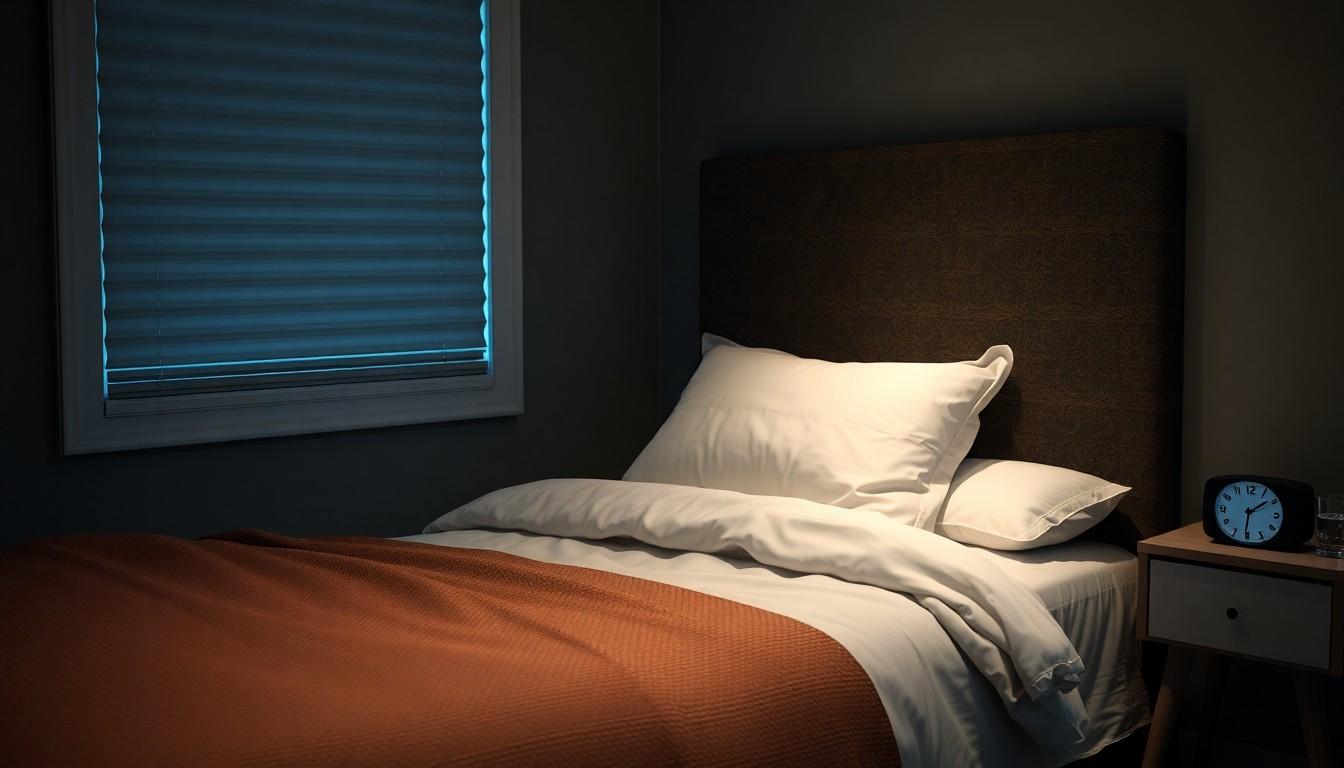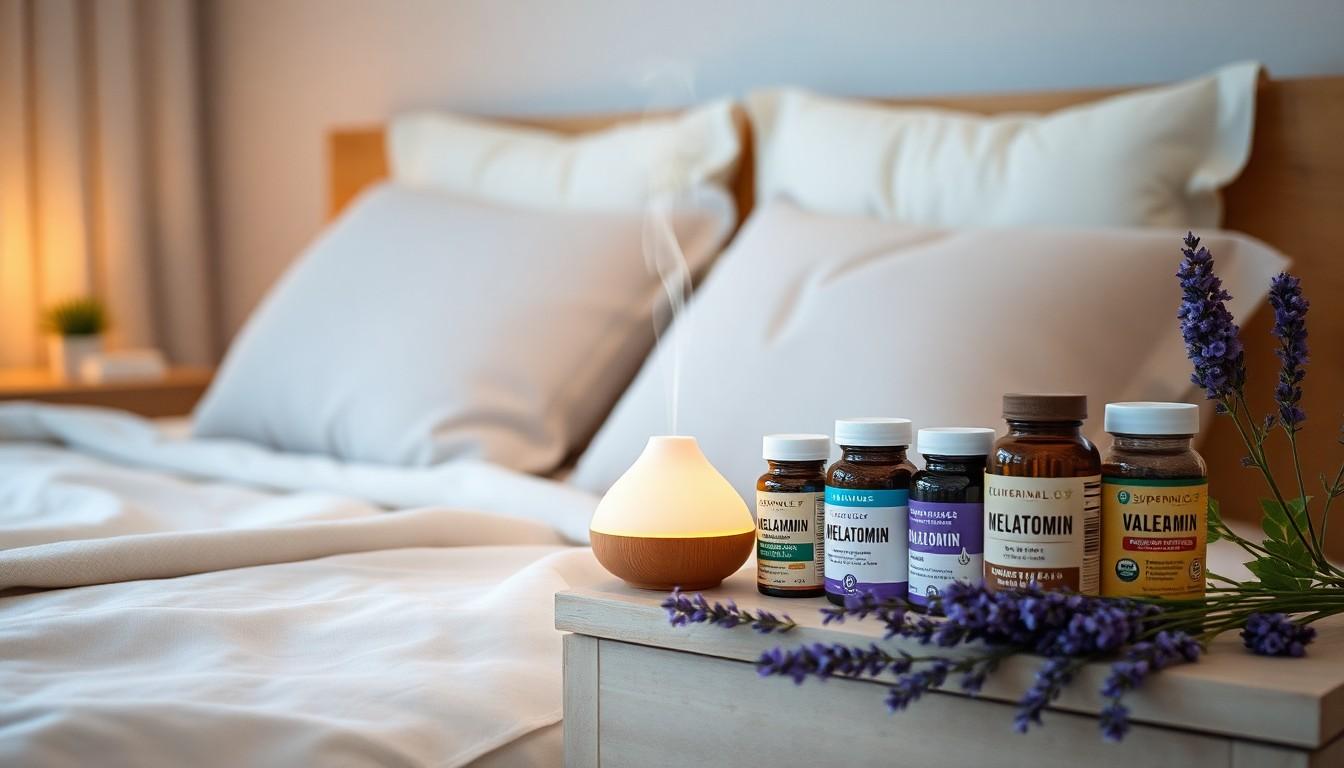Millions of people around the world struggle with insomnia a sleep disorder that makes it difficult to fall asleep stay asleep or both. This common condition can significantly impact daily life affecting everything from work performance to personal relationships and overall health.
Sleep plays a vital role in maintaining physical and mental well-being yet modern lifestyles often interfere with natural sleep patterns. The rise of digital devices artificial lighting and increased stress levels have contributed to the growing prevalence of insomnia. While occasional sleepless nights are normal chronic insomnia can lead to serious health complications including weakened immunity depression and cardiovascular problems.
Understanding Insomnia and Its Types
Insomnia manifests as a persistent difficulty in falling asleep or maintaining sleep despite adequate sleeping conditions. This sleep disorder exists in two distinct forms, each with unique characteristics and durations.
Acute vs. Chronic Insomnia
Acute insomnia occurs for brief periods lasting a few days to one month, triggered by:
- Environmental changes including noise levels or unfamiliar surroundings
- Stressful life events such as job loss or relationship issues
- Physical discomfort from illness or medication side effects
- Travel-related disruptions like jet lag
Chronic insomnia persists for 3+ months with symptoms occurring at least 3 nights per week, characterized by:
- Consistent difficulty initiating sleep
- Frequent nighttime awakenings
- Early morning awakening with inability to resume sleep
- Secondary health complications from prolonged sleep deprivation
Common Symptoms and Warning Signs
Physical symptoms include:
- Daytime fatigue or exhaustion
- Headaches or muscle tension
- Difficulty concentrating or focusing
- Impaired memory or decision-making abilities
- Increased irritability or mood swings
- Reduced performance at work or school
- Decreased coordination
- Social withdrawal or relationship strain
| Type of Insomnia | Duration | Frequency | Medical Intervention |
|---|---|---|---|
| Acute | < 1 month | Intermittent | Often resolves without treatment |
| Chronic | ≥ 3 months | ≥ 3 nights/week | Requires professional assessment |
The Science Behind Sleep Disorders

Sleep disorders stem from disruptions in the intricate biological processes that regulate sleep. Understanding these processes reveals why sleep disorders occur and how they affect overall health.
How Sleep Cycles Work
Sleep progresses through four distinct stages in 90-minute cycles throughout the night. The stages include three non-rapid eye movement (NREM) phases followed by rapid eye movement (REM) sleep:
- Stage 1 NREM: Light sleep with slow eye movements lasting 1-5 minutes
- Stage 2 NREM: Deeper sleep with reduced body temperature lasting 10-60 minutes
- Stage 3 NREM: Deep sleep with delta brain waves lasting 20-40 minutes
- REM: Active brain waves with vivid dreams lasting 10-60 minutes
People with sleep disorders experience disruptions in these cycles, leading to:
- Extended sleep latency periods
- Frequent interruptions between stages
- Reduced time in restorative deep sleep
- Irregular transitions between sleep phases
Chemical and Hormonal Factors
The sleep-wake cycle relies on specific chemical messengers and hormones:
| Chemical/Hormone | Primary Function | Peak Production Time |
|---|---|---|
| Melatonin | Signals sleep onset | Evening (9-11 PM) |
| Cortisol | Promotes wakefulness | Morning (6-8 AM) |
| Adenosine | Builds sleep pressure | Throughout day |
| GABA | Reduces brain activity | During sleep |
- Delayed melatonin production disrupts natural sleep timing
- Elevated cortisol levels prevent proper sleep initiation
- Irregular adenosine buildup affects sleep pressure
- Reduced GABA activity causes heightened brain arousal
Common Causes of Insomnia

Insomnia emerges from multiple interrelated factors that disrupt natural sleep patterns. These causes range from underlying health conditions to psychological stressors that interfere with the body’s ability to initiate or maintain sleep.
Physical Health Conditions
Physical health conditions create physiological barriers to quality sleep through various mechanisms:
-
Chronic Pain Conditions
- Arthritis affects 54% of insomnia patients
- Fibromyalgia disrupts deep sleep phases
- Lower back pain increases nighttime awakenings
-
Digestive System Disorders
- GERD triggers sleep disruptions through acid reflux
- Irritable Bowel Syndrome causes nighttime discomfort
- Ulcers intensify pain during lying positions
-
Respiratory Issues
- Sleep apnea interrupts breathing 5-30 times per hour
- COPD reduces oxygen levels during sleep
- Asthma symptoms often worsen at night
Mental Health and Stress
Mental health conditions alter brain chemistry and thought patterns that impact sleep:
-
Anxiety Disorders
- Generalized Anxiety creates racing thoughts
- Panic Attacks increase sleep anticipation anxiety
- Social Anxiety correlates with delayed sleep onset
-
Mood Disorders
- Depression alters sleep-wake cycles
- Bipolar disorder disrupts circadian rhythms
- Seasonal Affective Disorder impacts sleep duration
- Work-related stress elevates cortisol levels
- Financial concerns trigger nighttime rumination
| Condition | Sleep Impact Rate | Average Sleep Delay |
|---|---|---|
| Chronic Pain | 54% | 45 minutes |
| GERD | 63% | 35 minutes |
| Anxiety | 70% | 55 minutes |
| Depression | 75% | 50 minutes |
Natural Remedies for Better Sleep

Natural remedies provide effective alternatives to prescription sleep medications for managing insomnia. These solutions incorporate herbal supplements, aromatherapy techniques and dietary modifications to promote restful sleep.
Herbal Supplements
Melatonin supplements aid sleep cycle regulation by mimicking the body’s natural sleep hormone production. Studies show melatonin reduces sleep onset time by 15-20 minutes on average.
Valerian root extract contains natural sedative compounds that enhance GABA activity in the brain. Clinical trials demonstrate valerian supplementation improves overall sleep quality scores by 30-45%.
Other evidence-based herbal options include:
- Chamomile tea containing apigenin for mild sedation
- Passionflower extract promoting relaxation
- Ashwagandha root reducing cortisol levels
Aromatherapy
Essential oils provide research-backed aromatherapeutic benefits for sleep:
- Lavender oil increases slow-wave sleep by 20%
- Vanilla scent reduces nighttime movement by 15%
- Ylang ylang lengthens total sleep time by 25 minutes
Application methods include:
- Diffuser use 30 minutes before bedtime
- 2-3 drops on pillowcase
- Bath with 5-7 drops mixed in carrier oil
Dietary Modifications
Key nutrients supporting healthy sleep include:
| Nutrient | Food Sources | Sleep Benefits |
|---|---|---|
| Magnesium | Leafy greens, nuts, seeds | Muscle relaxation |
| Potassium | Bananas, sweet potatoes | Reduces night wakings |
| Tryptophan | Turkey, eggs, dairy | Serotonin production |
| B6 | Fish, chickpeas | Melatonin synthesis |
- Consume sleep-supporting foods 2-3 hours before bed
- Avoid caffeine after 2 PM
- Limit alcohol within 4 hours of bedtime
Medical Treatments for Insomnia

Medical treatments for insomnia encompass prescription medications and behavioral interventions designed to address persistent sleep difficulties. These treatments target different aspects of sleep disturbance to help restore natural sleep patterns.
Prescription Medications
Prescription sleep medications fall into two primary categories, each offering distinct benefits for managing insomnia symptoms:
Benzodiazepines
Benzodiazepine medications act on specific brain receptors to induce sleep:
- Estazolam (Prosom): Treats sleep onset issues
- Flurazepam (Dalmane): Aids in maintaining sleep
- Quazepam (Doral): Reduces nighttime awakenings
- Temazepam (Restoril): Improves sleep quality
- Triazolam (Halcion): Addresses acute insomnia
Non-Benzodiazepine Hypnotics
These newer sleep medications provide targeted effects with reduced side effects:
- Eszopiclone (Lunesta): Improves both sleep onset and maintenance
- Zaleplon (Sonata): Specifically targets difficulty falling asleep
Behavioral Therapy Options
Behavioral therapy approaches provide structured interventions to modify sleep-related behaviors and thoughts:
Cognitive Behavioral Therapy for Insomnia (CBT-I)
CBT-I components include:
- Sleep restriction therapy to consolidate sleep periods
- Stimulus control to strengthen bed-sleep associations
- Cognitive restructuring to address anxiety about sleep
- Relaxation techniques to reduce physical tension
- Maintaining consistent sleep-wake schedules
- Creating an optimal sleep environment
- Limiting exposure to screens before bedtime
- Establishing pre-sleep relaxation routines
Long-Term Effects of Sleep Deprivation
Sleep deprivation creates significant disruptions in physical health mental well-being across multiple body systems. Extended periods without adequate sleep trigger cascading effects that impact cardiovascular function metabolic processes immune system responses.
Physical Health Impact
Chronic sleep loss damages vital body systems in several ways:
- Cardiovascular Disease: Sleep deprivation increases heart attack stroke risk by disrupting blood pressure regulation blood sugar levels inflammation markers. Adults sleeping less than 7 hours nightly face elevated cardiovascular risks.
- Metabolic Function: Lack of sleep disrupts hunger-regulating hormones leading to:
- Weight gain from increased appetite
- Insulin resistance development
- Higher risk of type 2 diabetes
- Metabolic syndrome complications
- Immune Response: Insufficient sleep compromises immune function by:
- Reducing antibody production
- Decreasing cytokine levels
- Weakening infection-fighting capabilities
- Slowing wound healing processes
Mental and Emotional Consequences
Sleep deprivation significantly affects cognitive emotional processing:
- Cognitive Decline:
- Impaired concentration attention span
- Decreased problem-solving abilities
- Slower reaction times
- Memory formation difficulties
- Reduced decision-making capacity
- Emotional Instability:
- Increased irritability mood swings
- Higher anxiety levels
- Greater stress sensitivity
- Emotional regulation challenges
- Enhanced negative emotional responses
- Mental Health Risks:
- Depression development
- Anxiety disorder onset
- Increased panic attack frequency
| Health Impact Category | Risk Increase % | Minimum Sleep Required |
|---|---|---|
| Cardiovascular Disease | 48% | 7-9 hours |
| Type 2 Diabetes | 37% | 7-8 hours |
| Obesity | 55% | 7-8 hours |
| Depression | 62% | 7-9 hours |
Conclusion
Understanding and addressing insomnia is crucial for maintaining overall health and well-being. Whether experiencing acute or chronic symptoms proper diagnosis and treatment can make a significant difference in sleep quality. A combination of lifestyle changes natural remedies and professional medical interventions offers hope for those struggling with sleepless nights.
Taking action against insomnia isn’t just about getting more rest – it’s about investing in long-term health and quality of life. By implementing appropriate treatment strategies and maintaining good sleep hygiene anyone can work toward achieving the restorative sleep their body needs.
